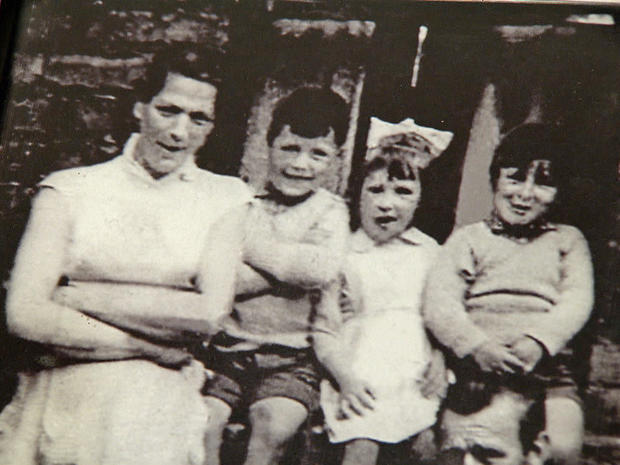Gerry Adams, Sinn Fein leader linked by ex-IRA members to Jean McConville murder, remains jailed in Ireland
DUBLIN -- Sinn Fein leader Gerry Adams remained in police custody for a second day Thursday as detectives questioned him over his alleged role in the Irish Republican Army's abduction, killing and secret burial of a Belfast mother of 10 in 1972.
Under Northern Ireland's anti-terrorist law Adams can be held until Friday night, by which time police must release or charge him, or seek a judicial extension to his custody.
Price, who has since died, also accused Adams of ordering a bombing that she carried out in London.
"Who sent me to London to blow it up?" she asked. "Gerry Adams."
In a statement released via Sinn Fein following his arrest, Adams said in his role as an Irish republican politician taking part in the peace process, he has "worked to bring closure to victims and their families who have contacted me. Even though they may not agree, this includes the family of Jean McConville.
"I believe that the killing of Jean McConville and the secret burial of her body was wrong and a grievous injustice to her and her family. Well publicized, malicious allegations have been made against me. I reject these. While I have never disassociated myself from the IRA and I never will, I am innocent of any part in the abduction, killing or burial of Mrs McConville."
Her remains, including a skull with a single gunshot wound to the back of the head, were finally discovered in 2003, more than 30 years after she disappeared, buried on an Irish beach.
Former IRA members interviewed for a Boston College-commissioned research project linked Adams to McConville's murder.
Northern Ireland police successfully sued in U.S. courts to acquire several tapes of IRA members, and have already used them to charge Adams' alleged former Belfast IRA colleague, 77-year-old Ivor Bell, with aiding McConville's killers.
Michael McConville, one of the slain woman's sons, told BBC radio this week that the children know the names of some of the IRA men who abducted their mother, but "I wouldn't tell the police."
"Me or one of my family members or one of my children would get shot by these people. People think this (IRA threat) has gone away. It hasn't," McConville said. "Splinter groups of the IRA would class you as an informant and shoot you."

